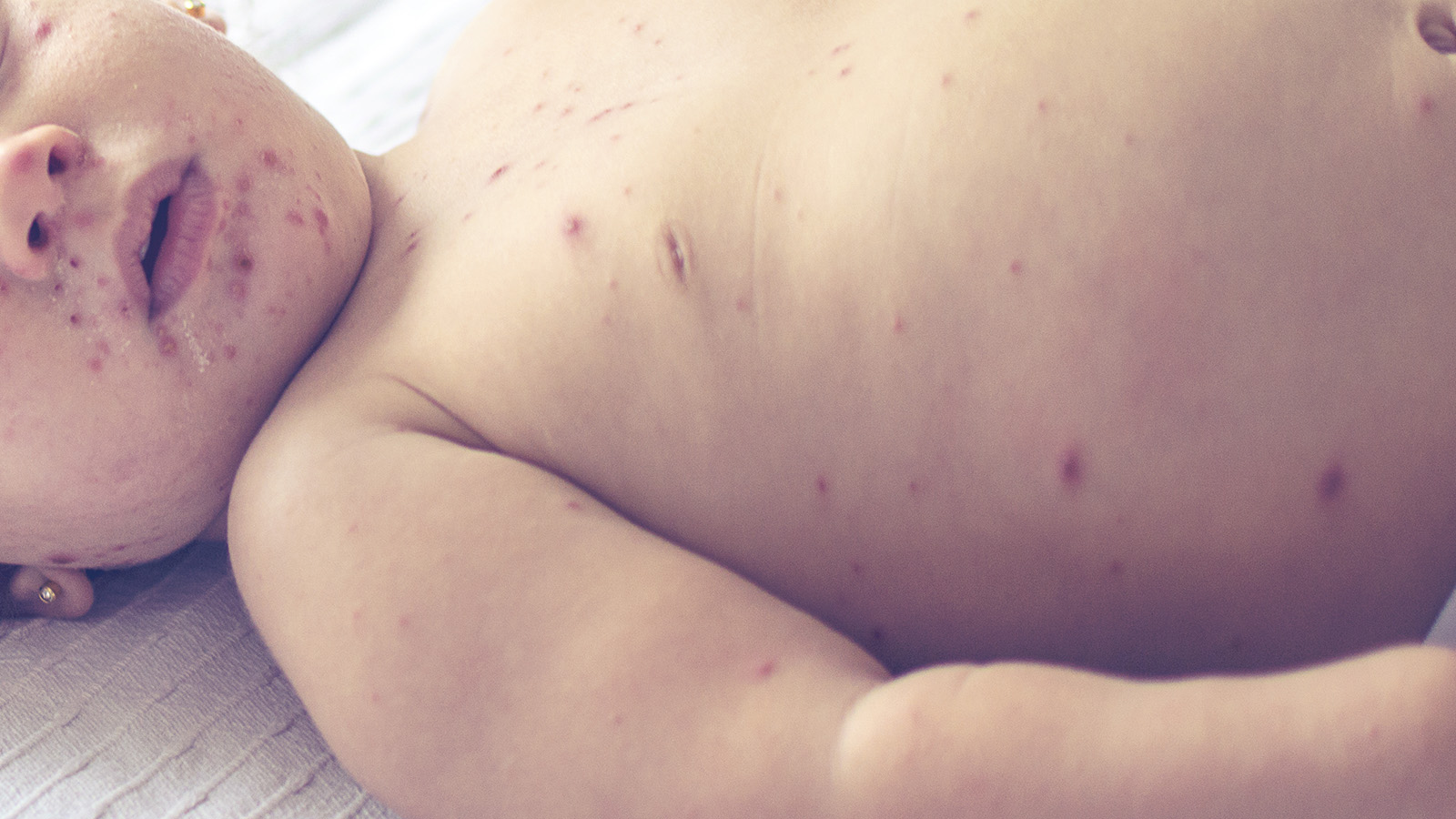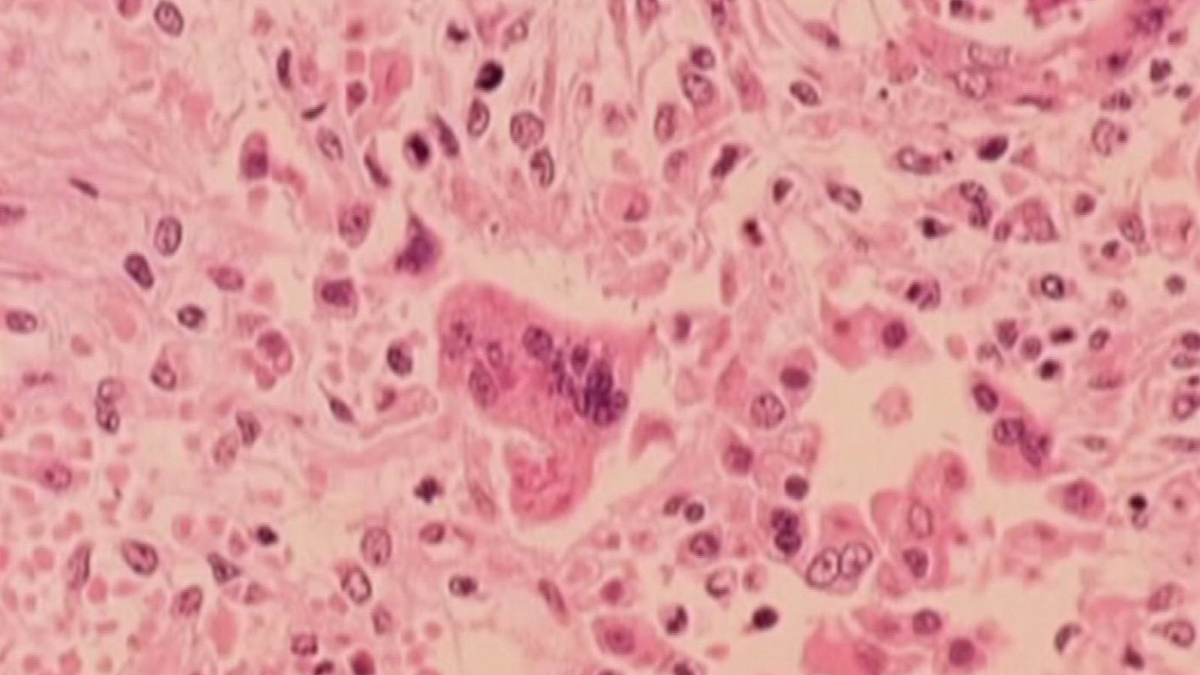As two measles cases have been confirmed in Chicago, leading some to quarantine as they work to find their vaccination status, many might be wondering how effective is the vaccine and how protected are you?
Measles vaccination first start in 1963 and has been long recommended for children of a certain age in the U.S.
But for those who aren't vaccinated, the virus can be particularly dangerous.
According to the Centers for Disease Control and Prevention, measles is considered "one of the most congtagious diseases."
"So contagious that if one person has it, up to 90% of the people close to that person who are not immune will also become infected," the CDC reports.
According to the CDC, two doses of MMR vaccine are about 97% effective at preventing measles, while one dose is about 93% effective.
Typically, the first dose is given to children between 12-15 months of age. The second dose is received between 4 and 6 years of age, though those without immunization record can receive the vaccine "as soon as possible."
According to the Chicago Department of Public Health, "most Chicagoans are routinely vaccinated in childhood and therefore not at high risk."
"Anyone who is not vaccinated against measles should do so," CDPH said in a release. "MMR vaccine is available at most doctor’s offices and pharmacies. Illinois children as young as 10 years-old can get vaccinated at pharmacies under Illinois law. CDPH Immunization clinics provide MMR vaccine for no out-of-pocket cost to any child 0–18 years and uninsured adults 19 and older."
Feeling out of the loop? We'll catch you up on the Chicago news you need to know. Sign up for the weekly Chicago Catch-Up newsletter here.
The CDC reports people who received two doses of the vaccine as children are "protected for life" and do not need booster doses.
"Very few people—about three out of 100—who get two doses of measles vaccine will still get measles if exposed to the virus," the CDC notes. "Experts aren’t sure why. It could be that their immune systems didn’t respond as well as they should have to the vaccine. But the good news is, fully vaccinated people who get measles seem more likely to have a milder illness. And fully vaccinated people seem also less likely to spread the disease to other people, including people who can’t get vaccinated because they are too young or have weakened immune systems."
Those looking to find out if they are vaccinated can check their immunization records here or ask their health care providers.
"The key to preventing measles is vaccination. If you are not vaccinated, we strongly encourage you to get the vaccine," CDPH Commissioner Dr. Olusimbo Ige said. "If you are unsure whether you’ve been vaccinated, ask your healthcare provider to find out if you need an MMR. If your child is 1 year old or older, and has never received the MMR vaccine, contact your child's pediatrician to discuss how your child can get caught up with their vaccines."
The CDC recommends those looking for personal vaccination records can:
- Ask parents or other caregivers if they have records of your childhood immunizations.
- Try looking through baby books or other saved documents from your childhood.
- Check with your high school and/or college health services for dates of any immunizations. Keep in mind that generally records are kept only for 1-2 years after students leave the system.
- Check with previous employers (including the military) that may have required immunizations.
- Check with your doctor or public health clinic. Keep in mind that vaccination records are maintained at doctor’s office for a limited number of years.
- Contact your state’s health department. Some states have registries (Immunization Information Systems) that include adult vaccines.
So far, two measles cases have been confirmed in the city within hours of each other, marking the first case of measles in a city resident since 2019, according to CDPH.
The first case was reported Thursday. According to officials, the source of the individual's infection is unknown at this time and their infection period ended on March 6. The individual is "recovering well" at their home, officials said.
Though an investigation did not identify any recent travel outside of Chicago, the infected individual did report interactions with domestic and international travelers.
Officials have not been able to determine a link between this case and a case of an Indiana resident who visited Chicago last month.
A second case was announced early Friday morning and was reported in a child staying at a migrant shelter in Pilsen. CDPH said the child has recovered and "is no longer infectious," but officials are asking residents at the shelter to "remain in place until it can be determined whether they are vaccinated against measles and therefore immune to the infectious disease."
"Those who have been vaccinated can leave the shelter while those who have not been vaccinated will have to remain," the statement continued. "All unvaccinated residents will be screened for symptoms and offered the measles vaccine."
The CDPH on Friday said it will be establishing a process to begin assessing vaccination statues for all residents at the shelter.
Health officials are working to contact individuals who may have been near the virus, and have determined that residents who were at the following locations on Feb. 27 may have been exposed to measles.
- Swedish Hospital, Galter Medical Pavilion at 5140 N California Ave, Chicago, IL 60625 between 8:30 a.m. and 12 p.m.
- CTA Bus #92 (Foster) between 9:15 and 11:30 a.m.
Anyone who was at the aforementioned locations at those times is encouraged to contact CDPH immediately at 312-743-7216 on weekdays between 8 a.m. and 5 p.m.
Those who develop symptoms should contact a health care provider prior to visiting a medical office or emergency department.



